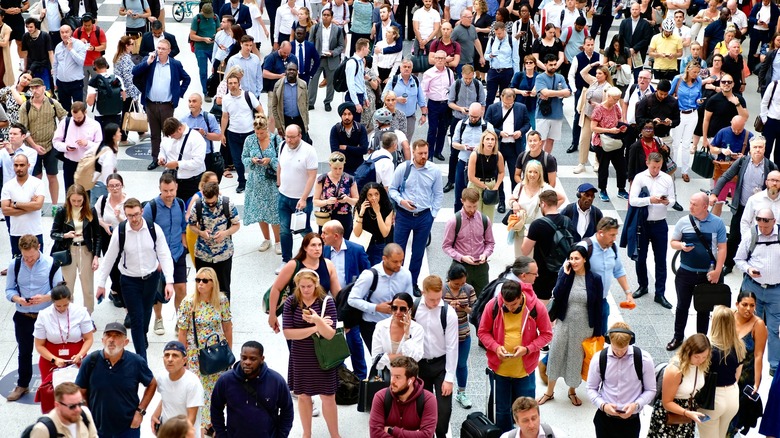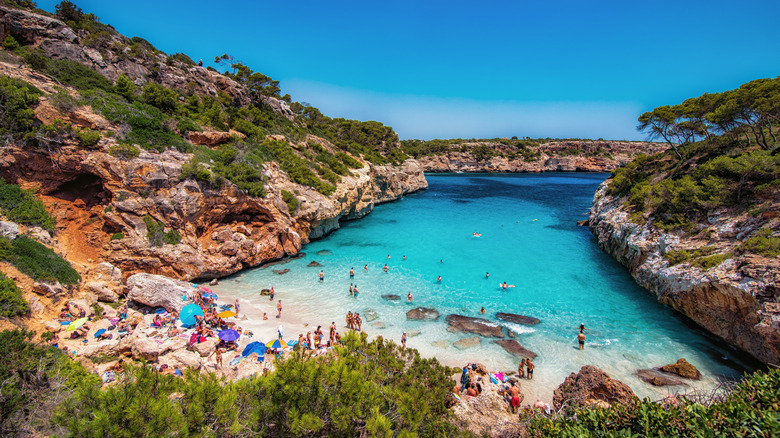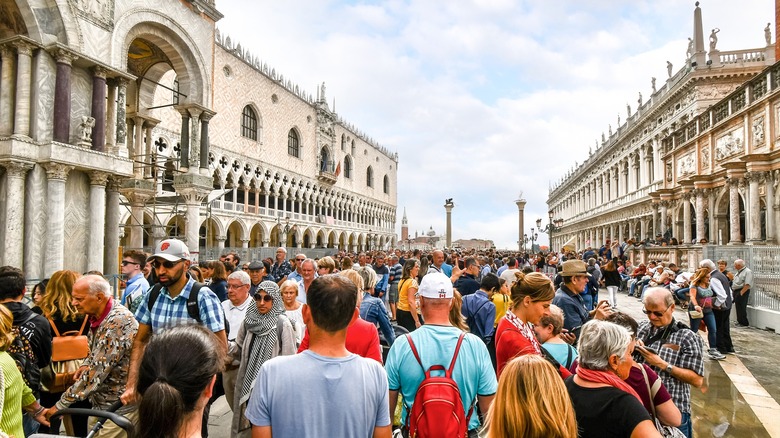Overtourism Is Becoming A Big Problem For These Popular Travel Destinations And Locals Are Fed Up
What do Mexico City, Mallorca, Barcelona, the Canary Islands, Venice, Hallstatt, and Amsterdam all have in common with each other? They are experiencing overtourism, and the locals are sick of it. As reported in Travel and Tour World, the people of Amsterdam are taking their City Council to court over its failure to carry out promised caps on tourist overnight stays. In 2021, the COVID-19 pandemic brought a short-term halt to tourism all over the world. Concerns about overtourism have been prominent in Amsterdam for years, and this brief respite led to a petition with 30,000 signatures calling for a limit on yearly overnight stays in the city. In 2021, a regulation was brought in to cap tourist overnight stays at 20 million per year.
This measure has not been enforced, however. In 2023, the number of people sleeping in the Venice of the North went up to 22.9 million, and there are fears that this number could rise to 28 million by 2027. Local supporters of the cap see this as a failure, and it has resulted in a movement called 'Amsterdam Has a Choice.' In response, Amsterdam's City Council has introduced a 12.5% tourist tax, a halt on building hotels, a reduction in river tours, and increased fines for anti-social behavior from tourists. Supporters of the movement don't feel that this tackles the root problem, because some locals feel Amsterdam is becoming impossible because of the sheer number of people.
The infrastructure can't handle these crowds
Overtourism can lead to many problems for locals. "I'm from a tourist town in Southern Spain. I live the effects of out of control tourism," explains one Reddit commenter. "Airbnbs everywhere. Being unable to find year round rent because landlords want to kick you out on summer time so they can rent it for tourists. Neighborhood shops closing down for a generic souvenir shop to open. Gentrification and loss of identity as a result of this." Here's how to spot signs of overtourism before you book.
These issues are not limited to Spain. Locals in the Canary Islands are concerned about the pressure on local resources and erosion of local culture. In Mallorca, citizens have seen their historic towns losing its character as more businesses cater for the needs of tourists, while local businesses and the housing market suffers. The people of Venice are concerned about how too many cruise ships are causing environmental and structural damage to the city, as mass tourism raises prices and threatens the culture.
Locals in Barcelona have protested under the 'Tourism Kills the City' movement, and have been known to spray tourists with water guns in a demonstration of their frustration. To enjoy Spain without contributing to overcrowding, check out one of Spain's best beach towns which offers a quieter escape just outside Barcelona. Gentrification in Mexico City means that locals are being priced out as they see their neighborhoods drastically changing to suit tourists.
Why do other popular travel destinations have an overtourism problem?
As a Londoner, I've been stuck in crowded streets so intense it felt like I was literally being lifted off the ground and carried along by a swarm of people. Subway entrances close for crowd control, trains are packed to inhuman levels, and pubs have rows of people drinking on the pavement because there's no space to even stand inside.
Ultimately, tourist destinations can quickly fall victim to their own popularity. As more construction and businesses are created to meet the needs of tourists, these places risk losing the very character and identity that made them so popular. This is not limited to Europe — it spans all across the world, with locals and tourists alike suffering as a result. Sadly, the list of the most beautiful destinations ruined by overtourism is long. This is not to suggest people shouldn't travel to these places, but it is worth being mindful of the impact you are having on the places you visit. Consider visiting at off-peak times if possible, check out some lesser known and less crowded destinations (Islands has many guides for lesser known places to visit!), be respectful to the locals (and try to get to know some local people, rather than just other tourists, if you can), and learn about local social norms and customs — and follow them.


